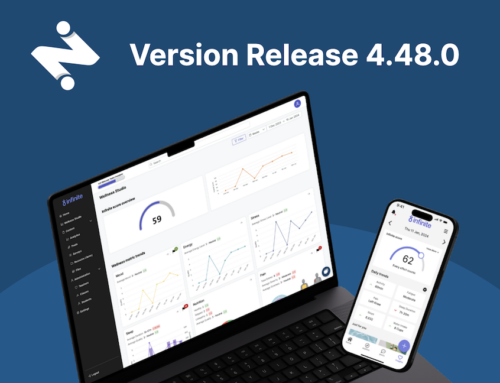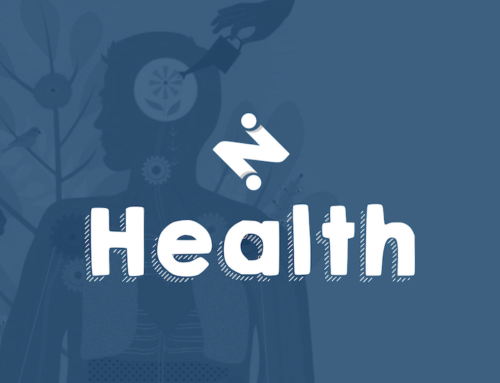Mental health issues are presenting at higher rates than ever seen before. Even before the onset of the pandemic, numerous studies indicated a concerning decline in the quality of mental health, particularly in youth. And we are just beginning to see the mental health impacts of two-plus years of lockdowns, social isolation and an unknown future. As just one example, in the space of 10 years, the US has seen a 40% increase in persistent feelings of sadness or hopelessness in high school students (2009 to 2019)†
The problem in numbers
This week, Sapien Labs released their mental state of the world report, providing a stark look at the state of mental health across the globe. The largest ever mental health survey included 34 countries, grouped as Europe, Latin America, West Africa, Middle East, North Africa and Core Anglosphere (United States, Canada, United Kingdom, Ireland, New Zealand, Australia).
The data found that there had been an 11% decline in mental wellbeing since 2020 across Core Anglosphere countries, with 30% of respondents in this group of countries indicating they were distressed or struggling. Of particular note was that Core Anglosphere countries recorded the lowest overall MHQ when compared to every other group, with data outlining a correlation between low MHQ and national statistics of suicide.ª
- According to the World Health Organization, one in seven 10-19 year-olds globally experience a mental health disorder, and suicide is the fourth leading cause of death in 15-19 year-olds.
- In the US, 52.9M people experienced mental illness in 2020, an increase of 5.7% from the previous year. The following year (2021) a state of emergency in child and adolescent mental health was declared by the American Academy of Pediatrics (AAP), American Academy of Child and Adolescent Psychiatry (AACAP) and Children’s Hospital Association (CHA).
- In Australia, one in four 16-24 year-olds experience a mental health disorder, the most common of which being anxiety and substance use disorders.
These are just a few of hundreds of data points of a mental health crisis that will soon become a global epidemic – if it isn’t one already.
The Covid Effect
Grief, anxiety and social isolation have become all too common elements of the pandemic period. Alongside a lack of available in-person treatment and therapy or the growing hesitation from many to seek treatment all together, we are witnessing a perfect storm.
How Can Tech Help
It’s clear that better support and more modern and accessible tools are urgently needed to help young people with their mental health. To be effective, however, these tools need to focus on early detection and be developed in a way that maximizes long term engagement. By prioritizing early identification and intervention in children and adolescents, prevention becomes possible.
Early studies show support for the usage of digital therapeutic technology in young people, with data showing that mobile apps have been used successfully in early intervention programs for depression, functioning as an immediate and easily accessible management tool. Further supporting a digital solution is the fact that 99% of 12-25 year olds in Australia have access to the Internet, of which 95% connect daily.
A Health Tech Solution
iNSPIRETEK has a singular goal; to improve mental health outcomes for millions of young people. To do this at pace we had to first identify the most effective way to gain traction at home and abroad – which has been through sport, due in large part to our founder Annie’s firsthand experience as a competitive gymnast, and also because of the added physical and mental stress and pressure placed on young athletes.
Our focus is firmly on the sport market and positively impacting as many young athletes as possible, but we know that over the long term, this is a problem that extends well outside of the lines of sport. We need to reach young people through the education system, community programs, and the healthcare industry.
Since the inception of iNSPIRETEK, and iNSPIRE Sport before it, we have largely considered ourselves a sports tech company in the short term. But with our broader focus and our product evolution, we have transitioned into a digital health company rooted in scientifically-validated content, privacy, security and ultimately, impact.
Stand With Us
If technology can act as the tool to help scale solutions for the global mental health epidemic among youth, support needs to be driven by key stakeholders and provided at key touch points. These include parents and carers in their households, teachers in the education system and coaches in sporting environments.
It will take a combined effort at all levels to create any form of lasting change. We are proud and humbled by the opportunity ahead of us, and know that the work is just beginning.
† www.whitehouse.gov/briefing-room/statements-releases/2022/03/01/fact-sheet-president-biden-to-announce-strategy-to-address-our-national-mental-health-crisis-as-part-of-unity-agenda-in-his-first-state-of-the-union
ª Newson JJ, Sukhoi O, Taylor J, Topalo O, and Thiagarajan TC, Mental State of the World 2021, Mental Health Million project, Sapien Labs, March 2021





